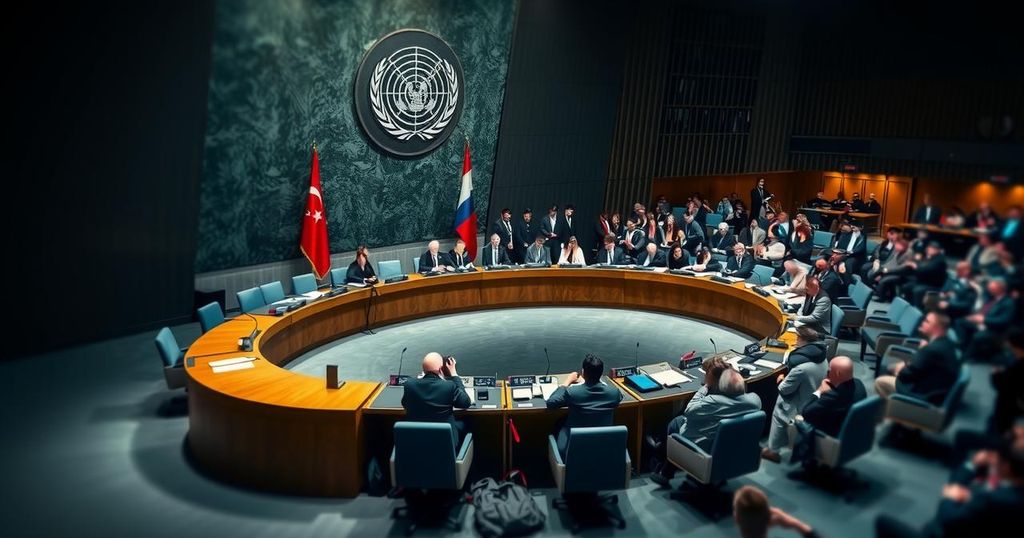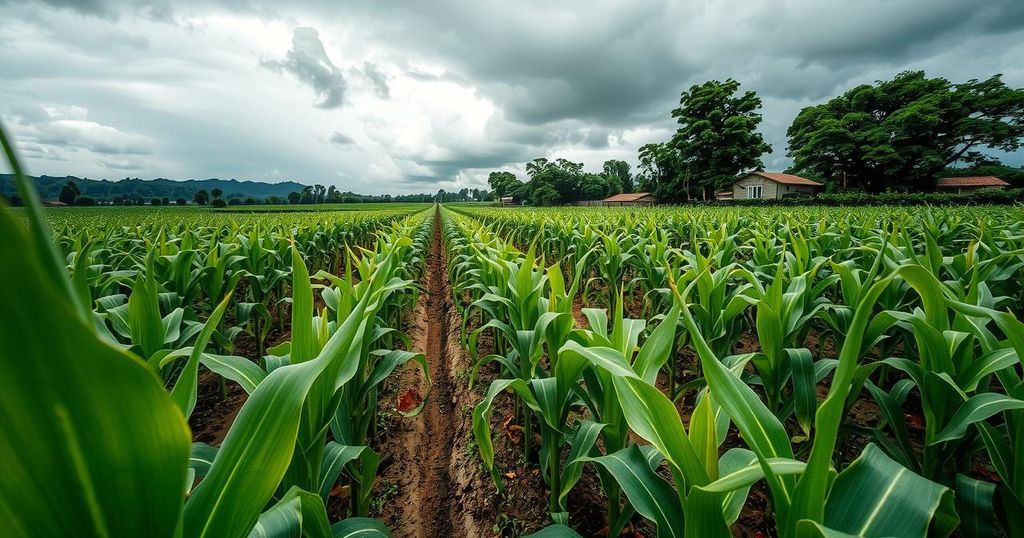COP29 Negotiators Pursue Climate Finance Agreement After G20 Summit
COP29 negotiators in Baku are striving to resolve key issues surrounding climate finance in light of the vague commitments from the G20 summit. Developing nations are calling for substantial public funding to address climate change, while disputes persist over the financial commitments and their sources. With the next COP presidency in Brazil, the outcomes of these negotiations will shape future climate action efforts.
Negotiators at COP29 have intensified efforts to reach a consensus following the G20 summit’s acknowledgment of the urgent need for enhanced climate finance directed towards developing nations. As discussions continued in Baku, Azerbaijan, leaders expressed dissatisfaction with the G20’s vague commitments on climate funding, particularly regarding fossil fuel transition. The upcoming COP presidency transitions from Azerbaijan to Brazil, underscoring the importance of fruitful negotiations before the climate talks in Belem, Brazil, next year. In the final days of COP29, countries are grappling with fundamental issues: the scale of financial commitments required, the parties liable for these contributions, and the types of financing mechanisms necessary to support climate action. While the G20 declaration advocated for a significant increase in climate finance, activists and diplomats criticized its lack of specificity and urged a transition to public funding rather than loans. Prominent figures from developing nations reiterated their demands for transparent, grant-based funding to address the climate crisis. Leaders emphasized the need for a clear turnaround from fossil fuel reliance, referencing previous commitments made during COP28. With the draft climate finance agreement anticipated shortly, developing countries advocate for a staggering $1.3 trillion annually, emphasizing that such support remains critical to mitigating climate impacts, particularly for those least responsible for global emissions.
The COP29 discussions come at a pivotal moment following a G20 summit which delegates convened to address global climate finance disparities. Poorer nations require substantial funding to adapt to climate changes and transition away from fossil fuels. The stakes are particularly high with only three days remaining in the climate talks, as leaders of developing nations assert the urgency for actionable commitments rather than vague promises. The upcoming Brazilian presidency is also weighing heavily on current negotiations, urging the necessity for palpable progress.
In summary, the COP29 negotiators face significant challenges as they attempt to forge a climate finance agreement amid diverging expectations and commitments stemming from the G20 summit. The emphasis on the need for substantial public funding, rather than loans, reflects the desires of developing countries as they navigate this complex landscape. As the deadline looms, achieving consensus becomes critical to advancing global climate initiatives and ensuring a sustainable future.
Original Source: www.rfi.fr




Post Comment